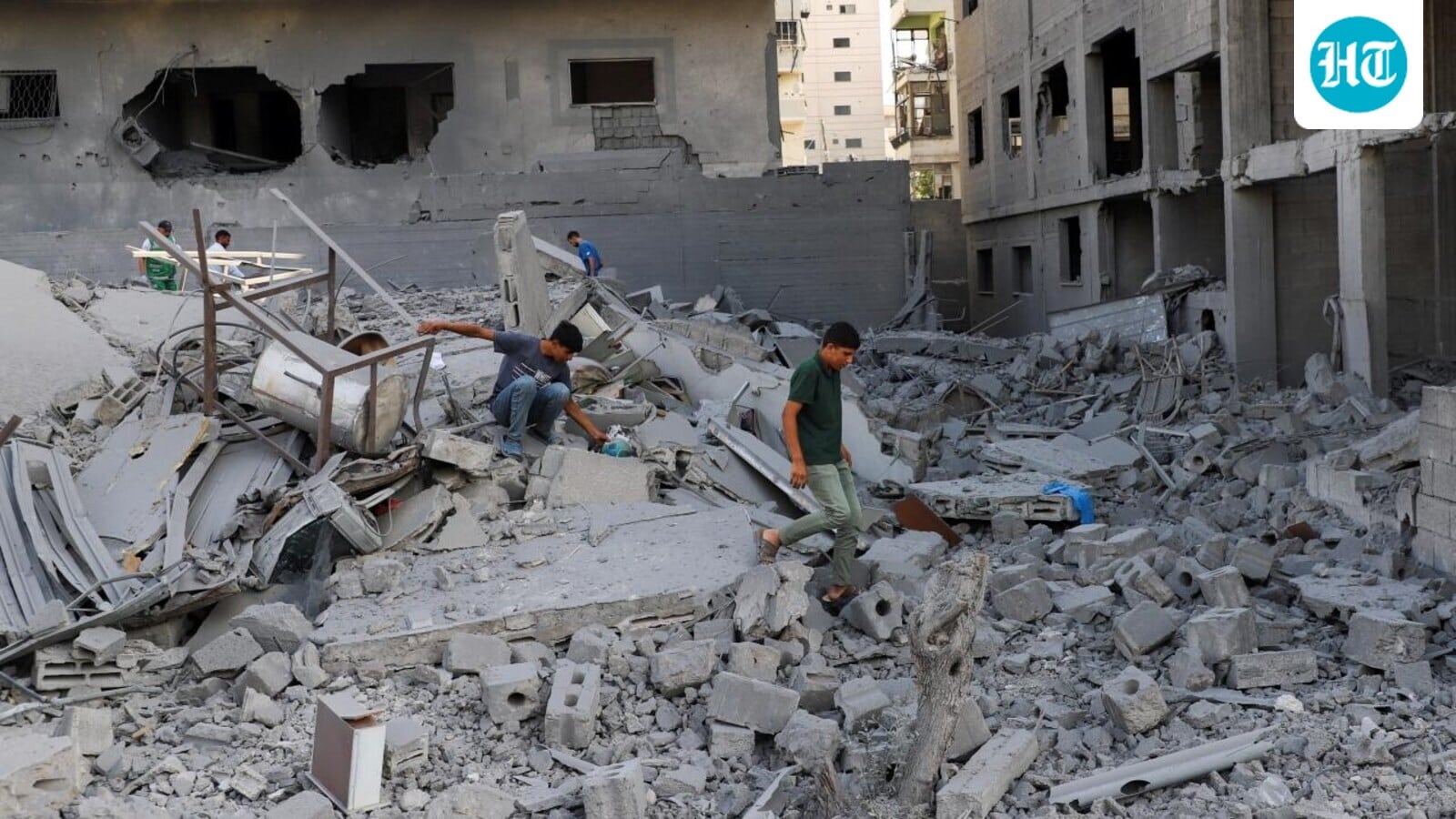Alaa Khalil, a 49-year-old Palestinian living in a tent camp in Gaza, doesn’t like the terms of President Trump’s peace plan. But she likes the war even less.
A mother of six who had to flee her home in Gaza City because of the fighting, Khalil says she is upset Trump’s plan has no timetable for an Israeli withdrawal from the enclave and no guarantee that Israel’s campaign against the militant group will stop for good.
“In many aspects this is not in the Palestinians’ favor,” she said in an interview. Even so, she said she hopes Hamas accepts it “so the bloodshed stops.”
It is hazardous to generalize about public sentiment in Gaza. There are no reliable opinion surveys. But half a dozen people in the Palestinian enclave reached by The Wall Street Journal all had a consistent message: Hamas should accept the U.S.-brokered deal, despite what they see as its shortcomings.
War has turned much of Gaza into ruins, driven the bulk of its two million people from their homes and left more than 67,000 dead, according to Palestinian health authorities, who don’t say how many were combatants.
For Khalil, that view marks a shift. She said she supported Hamas before the war. Her husband worked in the Hamas government’s finance ministry. He was detained by Israel when the conflict started. But Hamas’s conduct during the war has led her to question the group’s decision-making and leadership.
Hamas triggered the conflict with its Oct. 7, 2023, attacks on Israel that left about 1,200 people dead. The group also kidnapped roughly 250 hostages. She says Hamas’s assault lacked a clear objective. And she blames the group for failing to secure Gaza and stockpile food and medicine.
Now displaced for a second time, with her husband still detained, she is upset that Hamas is making an issue of disarmament when its weapons have been shown throughout the war to be ineffective at stopping the Israeli advance.
“I don’t feel like our suffering matters to them,” Khalil said. “I am very upset by their statements.”
Under Trump’s 20-point plan, announced Monday last week, Hamas is to release the 48 living and dead hostages it holds as well as its weapons. Administration of Gaza would be handed to an apolitical committee of technocrats. An Arab-led international force would guarantee security.
Talks on the first objective of the deal—the release of the hostages in exchange for hundreds of Palestinian prisoners—get under way this week in Egypt. Israel and Hamas have said they are on board, but each has expressed caveats or qualifiers that signal an agreement could be hard to reach.
Hamas objects to turning over its small arms, which it considers defensive weapons, and wants a more detailed timeline for Israel’s staged withdrawal. Israel says it agrees to the deal but on its terms, which require a capitulation by Hamas.
Eman Badah, the mother of a days-old premature baby, said she wants Hamas to relent.
“For me, anything that ends the war is good,” she said. “I don’t care about Hamas’s weapons, its leaders, their fate or the prisoners. My husband, my son, and I—we are the ones paying the price.”
Badah, 31, says she gave birth four days after heavy shelling drove her family from their home in Gaza City. Her son is now in intensive care at Al-Aqsa Martyrs Hospital in the central Gaza town of Deir al-Balah.
She lives nearby in a bombed-out building with her extended family. The bathroom, she says, is a tent in the street with rats and insects.
She said she wonders what Hamas thought would happen when it launched the 2023 attacks, why it didn’t prepare and what it thinks could be gained from further fighting. She doesn’t trust Israel, and Trump’s deal isn’t perfect, but, she said, it does promise the things she needs—a cease-fire, food, reconstruction.
“What are we waiting for?” she said. “At the end of the day, we are suffering,”
Even when Gazans are out of the line of fire, living conditions are a constant struggle. Rozian Hwaila, 29, displaced from Gaza City and now in Deir al-Balah, lives in a tent on land her family has to rent.
Hwaila says life amid the war is hard. Very few people she knows oppose Trump’s plan, she said. Everyone wants at least to be able to pitch a tent in front of their old homes.
“Disarming Hamas is the last thing on my mind,” she said. ”I want this war to stop—at any cost.”
Reem Saleha, 40, fled Gaza City a week ago as fighting there intensified and is now living with her seven children, including two young twins, in the southern town of Khan Younis. They fled on foot—a 14-hour walk—and couldn’t bring their belongings, so her husband stayed behind.
Before the war, their life was good, she said. Her husband worked in Israel, and they had money to buy what they needed. She has since sold off her gold bit by bit to get by. The last of it went before they evacuated to the south.
Conditions now are terrible, she said. She worries about the years her children have spent out of school, and that they have been learning war terminology.
“I know there are many unfair demands, but all I want is an end to the war, rebuilding and for my kids to go back to school,” she said. “All we want is safety.”


